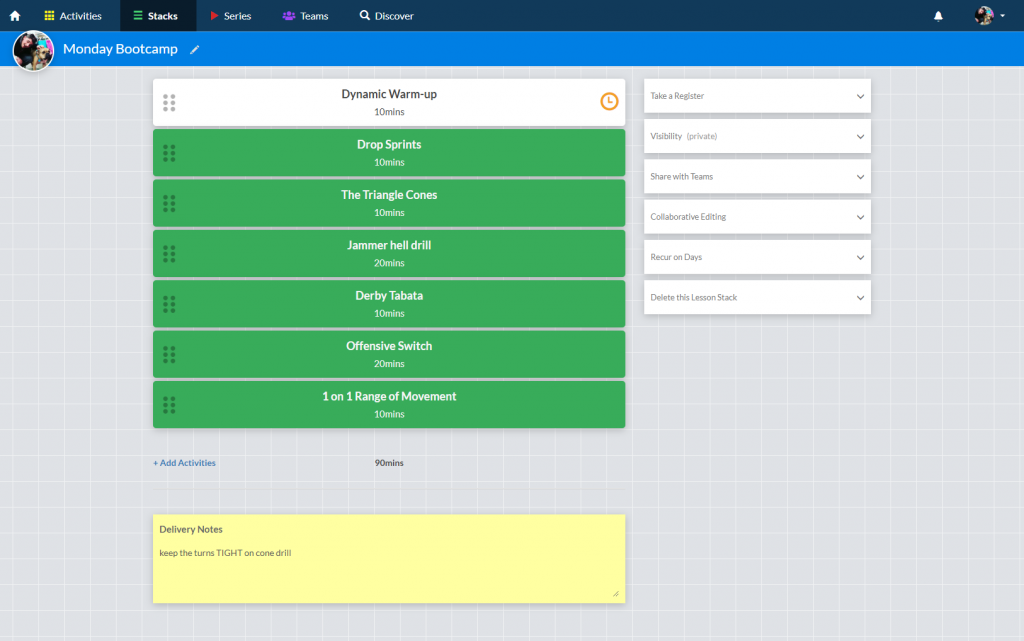New podcast!
Often when coaching and teaching a key element in how challenging the session is is timing.
Keeping the pot on the boil is a phrase I use to visualise the workrate I want in the room. I want the students busy, but controlled. In my mind if the pot goes cold then students get bored, and if the session moves to quickly and they can’t keep up – then it’s boiled over.
A key part in keeping this challenge level alive is how often you change the activity. If students are doing the same activity for too long, they will drift off task because they are bored, likewise if the activity changes too often they will not be able to keep up.

In the above session plan, I change the activity roughly every 10 minutes depending on how in depth it needs to be. However, during the session I will use my judgement to adjust the timings with the goal of keeping the pot on the boil – I want that room buzzing!
Something to consider when keeping your session on the boil is familiarity – learners can attack a drill faster if they are familiar with it. For example, Drop Sprints is a drill I use regularly, and I know when it begins I can give the instruction without too much preamble, and skaters can be working quickly without the need for me to waste their time talking.
When you introduce new topics and drills to your group is something to think about carefully. The benefits of introducing a new drill are that you can traion in new and better ways, but the drawbacks is that it is going to take more time for you to explain and the skaters will not be able to attack that drill with the same pace. That’s not to say you shouldn’t introduce new drills – of course you should – but when you are planning a session be mindful of how much of it is new and how much is familiar and be deliberate in your intentions.
Lastly, a great tip for keeping the pot on the boil is calling out the remaining time at regular intervals. For example – “2 minutes left people!” and so on. Doing this will achieve two things, one it will reinforce the skaters mindset that they are working to a clock and need to work quickly, and two, it will prevent skaters from saying to you at the end of the drill “can we have another minute, we didn’t all do it”, which can be a real pain, especially when some groups have done everything and others have not – it’s much easier as a coach to make sure everyone has completed the drill ahead of time rather try and fix it at the end.
Keep that pot boiling!
Rex T x

